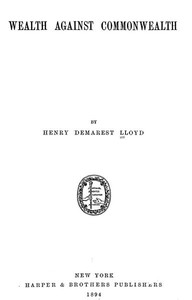Downloads & Free Reading Options - Results
Using Focus Groups To Understand Causes For Morale Decline After Introducing Change In An Im Residency Program. by Rucker%2c Lloyd
Read "Using Focus Groups To Understand Causes For Morale Decline After Introducing Change In An Im Residency Program." by Rucker%2c Lloyd through these free online access and download options.
Books Results
Source: The Internet Archive
The internet Archive Search Results
Available books for downloads and borrow from The internet Archive
1Using Focus Groups To Understand Causes For Morale Decline After Introducing Change In An IM Residency Program.
By Rucker, Lloyd, Shapiro, Johanna, Fornwalt, Cliff, Hundal, Keenu, Reddy, Swapna, Singson, Zarema and Trieu, Khanh
This article is from BMC Medical Education , volume 14 . Abstract Background: Although program evaluation is a core requirement of Internal Medicine residencies, little is reported in the literature regarding resident satisfaction with training. Most program evaluation consists of numerical rating scales from which it is often difficult to pinpoint exact sources of dissatisfaction. Methods: Our goal in this work is to evaluate the utility of focus group methodology to uncover in detail the reasons for residents’ deteriorating morale in an IM residency program, as well as to solicit suggestions for correction. This study employed focus groups (FG) in a qualitative research design, in which descriptive statistics from a resident program evaluation survey served to guide an intensive focus group process. Participants were 40 of 45 2nd and 3rd year internal medicine residents enrolled in the IM residency training program. Five chief residents were trained to conduct 5 focus groups with 8 residents in each group. The focus groups examined possible issues contributing to the deterioration of morale noted in the quantitative survey. Results: Many unexpected themes were uncovered by the FGs. Residents identified the following factors as the major contributors to deteriorating morale: 1) Pace of change 2) Process of change 3) The role of chief residents in change 4) Fear of intimidation and retaliation. Groups also suggested practical recommendations for improving the culture of the residency. Conclusion: Introducing change in residency training is a challenging process. Respectful attention to resident frustrations and solution-focused discussions are necessary to understand and improve morale. Focus groups proved to be a useful tool in revealing the precise source of pervasive resident concerns as well as providing potential solutions. In addition, FGs methodology can be adapted in a practical manner to residency evaluation.
“Using Focus Groups To Understand Causes For Morale Decline After Introducing Change In An IM Residency Program.” Metadata:
- Title: ➤ Using Focus Groups To Understand Causes For Morale Decline After Introducing Change In An IM Residency Program.
- Authors: ➤ Rucker, LloydShapiro, JohannaFornwalt, CliffHundal, KeenuReddy, SwapnaSingson, ZaremaTrieu, Khanh
- Language: English
Edition Identifiers:
- Internet Archive ID: pubmed-PMC4094667
Downloads Information:
The book is available for download in "texts" format, the size of the file-s is: 6.17 Mbs, the file-s for this book were downloaded 81 times, the file-s went public at Thu Oct 16 2014.
Available formats:
Abbyy GZ - Animated GIF - Archive BitTorrent - DjVu - DjVuTXT - Djvu XML - Item Tile - JSON - Metadata - Scandata - Single Page Processed JP2 ZIP - Text PDF -
Related Links:
- Whefi.com: Download
- Whefi.com: Review - Coverage
- Internet Archive: Details
- Internet Archive Link: Downloads
Online Marketplaces
Find Using Focus Groups To Understand Causes For Morale Decline After Introducing Change In An IM Residency Program. at online marketplaces:
- Amazon: Audiable, Kindle and printed editions.
- Ebay: New & used books.
Source: LibriVox
LibriVox Search Results
Available audio books for downloads from LibriVox
1Wealth Against Commonwealth
By Henry Demarest Lloyd

Wealth Against Commonwealth was published in 1894 by Henry Demarest Lloyd to expose the unethical business practices of monopolies. The book primarily focused on the Standard Oil Company, while also citing trusts affecting numerous commodities, including coal, iron, and lumber. Lloyd argues monopolies actively suppress competition, control enough of their respective commodity to reduce production to increase demand and prices, and harm societal well-being by by concentrating control of large sums of wealth and power within a few corporations, undermining democracy (“Liberty produces wealth, and wealth destroys liberty.”) Henry Demarest Lloyd was born in New York and moved to Chicago after attending Columbia University, where he wrote for the Chicago Tribune and was a leading muckraker journalist. His investigative journalism, criticism of monopolies, and support of organized labor advanced the Progressive Movement. While writing Wealth Against Commonwealth, he reflected on the toll the work had taken on him in a letter to his mother, "It keeps me poking about and scavenging in piles of filthy human greed and cruelty almost too nauseous to handle. Nothing but the sternest sense of duty and the conviction that men must understand the vices of our present system before they will be able to rise to a better, drives me back to my desk every day." - Summary by Bryan Travis
“Wealth Against Commonwealth” Metadata:
- Title: Wealth Against Commonwealth
- Author: Henry Demarest Lloyd
- Language: English
- Publish Date: 1894
Edition Specifications:
- Format: Audio
- Number of Sections: 46
Edition Identifiers:
- libriVox ID: 21795
Links and information:
Online Access
Download the Audio Book:
Online Marketplaces
Find Wealth Against Commonwealth at online marketplaces:
- Amazon: Audiable, Kindle and printed editions.
- Ebay: New & used books.
Buy “Using Focus Groups To Understand Causes For Morale Decline After Introducing Change In An Im Residency Program.” online:
Shop for “Using Focus Groups To Understand Causes For Morale Decline After Introducing Change In An Im Residency Program.” on popular online marketplaces.
- Ebay: New and used books.